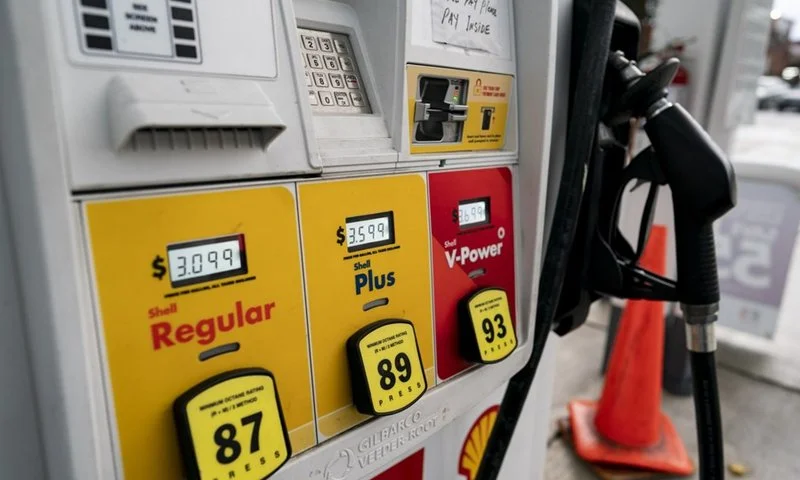Pennsylvania’s gas tax is set to drop for the first time since 2018. Will drivers benefit?
For the first time since 2018, Pennsylvania drivers soon could consistently pay a little bit less at the pump — based on a change in Pennsylvania's motor fuel tax rates.
According to the state Revenue Department, the rate, commonly known as a gas tax, will be lowered Jan. 1.
The tax — the highest in the nation in 2023 — will drop from $0.611/gallon to $0.576/gallon and will remain in place through 2024.
Gas prices | PA vs. the nation
Despite Pennsylvania’s gas tax falling, its overall gas prices remain well above average compared with other states.
According to AAA, Pennsylvania had the seventh-highest gas prices in the country on Dec. 21, averaging $3.432 per gallon.
The states with the six highest prices were Hawaii, California, Washington, Nevada, Oregon and Alaska.
Pennsylvania’s price was well above the national average of $3.12/gallon for regular unleaded — and comes during the first weekly increase in prices since September.
“Daily gas prices will likely move back and forth for the next month or so,” AAA spokesperson Andrew Gross said in a release Thursday.
“Looking back at pre-pandemic 2019, the national average did not make a firm turn to moving higher daily until Valentine’s Day, February 14.”
The fluctuation comes with drivers hitting the road to their holiday destinations.
Thursday’s national average was two cents more than a week ago, 17 cents less than a month ago and two cents more than a year ago.
Will we really pay less at the pump?
Pennsylvania’s gas tax is based on the average wholesale price of gasoline, and is only going down because of declining wholesale prices.
But a drop in the gas tax doesn’t necessarily mean we’ll all pay less at the pump.
Pennsylvania’s oil company franchise tax is imposed on all taxable liquid fuels and fuels on a cents-per-gallon equivalent basis, and is remitted by distributors of liquid fuels and fuels.
But a tax cut in Pennsylvania wouldn’t fully benefit motorists. Instead, we’d likely have to share the savings with suppliers.
But a drop in the gas tax doesn’t necessarily mean we’ll all pay less at the pump.
Pennsylvania’s oil company franchise tax is imposed on all taxable liquid fuels and fuels on a cents-per-gallon equivalent basis, and is remitted by distributors of liquid fuels and fuels.
But a tax cut in Pennsylvania wouldn’t fully benefit motorists. Instead, we’d likely have to share the savings with suppliers.

